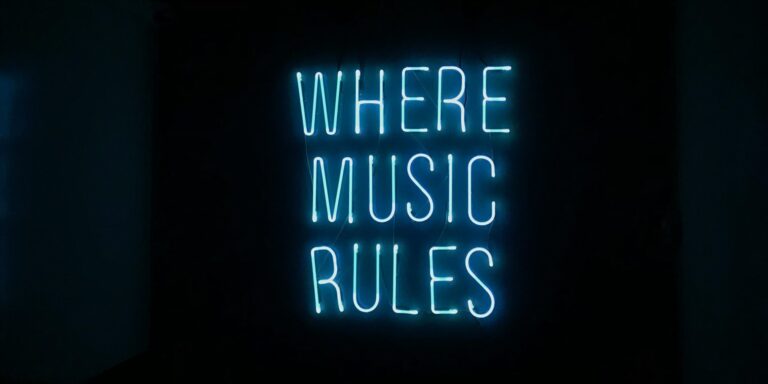In a landmark development for the music industry, Universal Music Group and Warner Music Group announced on May 12, 2025, that they will begin sharing royalties from AI-generated content with songwriters whose original works were used to train the artificial intelligence models. This unprecedented move marks a pivotal shift in how copyright and intellectual property are treated in the digital age.
The decision arrives amid growing concerns over how generative AI technologies utilize copyrighted material. Both Universal and Warner have confirmed that this new policy will ensure songwriters receive compensation when AI-generated music includes elements derived from their original compositions. It is the first formal recognition of human creators’ contributions to AI training in the commercial music sector.
Industry insiders view this move as a proactive step toward balancing technological innovation with artists’ rights. As AI-generated music platforms grow in popularity and sophistication, questions about fair use and ethical deployment of copyrighted works have become increasingly urgent.
A New Chapter for Creative Rights
The music industry has been grappling with the impact of generative AI, which can compose melodies, lyrics, and full tracks that mimic popular styles and voices. AI systems are typically trained on vast datasets of existing music, which often include copyrighted works. Until now, creators whose songs contributed to these datasets had not received any compensation or acknowledgment.
Under the new agreement, Universal and Warner will implement a royalty-sharing framework that allocates a percentage of AI-generated content revenue to the original songwriters whose works were included in training data. While the specifics of royalty percentages have not been publicly disclosed, both labels emphasized that transparency and fairness are central to the agreement.
This initiative is expected to be rolled out in phases over the coming months, with the first wave of eligible songwriters receiving detailed breakdowns of how their work was used and how royalties will be distributed.
The Role of Technology in Attribution
To facilitate accurate royalty distribution, Universal and Warner are investing in content identification systems similar to YouTube’s Content ID. These systems can analyze AI-generated outputs and trace stylistic and compositional elements back to source material.
This technological underpinning is crucial for ensuring that the right creators are credited and compensated. It also enables opt-in and opt-out provisions, allowing artists and rights holders to control how their music is used in AI training and generation.
Experts believe this system could become a model for other industries grappling with similar challenges, including publishing, visual arts, and film.
Artists and Industry Reactions
The reaction from the music community has been largely positive. Songwriters and advocacy groups have long called for clearer regulations and better compensation structures in the age of AI. Many see this agreement as a step in the right direction.
“This is about recognizing that behind every great piece of music, there is a human story and a human creator,” said one songwriter whose work has appeared in AI training sets. “It’s encouraging to see major labels stepping up to defend those contributions.”
Music rights organizations have also expressed support. They argue that this model could pave the way for more sustainable and ethical AI development that aligns with the values of the creative community.
Broader Industry Implications
This move by two of the world’s biggest music labels is likely to set a precedent for the entire industry. Sony Music Entertainment, the third member of the so-called “Big Three,” is reportedly in advanced discussions to adopt a similar policy.
Smaller labels and independent music platforms may follow suit, especially as public pressure mounts for ethical AI use. Governments and regulators are also taking note, with discussions underway in several countries about updating copyright laws to reflect the realities of machine learning and content generation.
In the United States, lawmakers have already introduced preliminary frameworks that would require AI developers to disclose training data sources and secure licensing for copyrighted content. The Universal-Warner agreement is seen as aligning with the spirit of these proposed regulations.
A Turning Point for Generative AI
The implications of this development extend beyond music. As generative AI becomes more ingrained in everyday life, industries must confront how to compensate the original sources of creative and intellectual content.
In music, this is especially poignant given the deeply personal and emotional nature of songwriting. For many creators, the idea that their work could be dissected and repurposed by algorithms without acknowledgment has been a source of unease.
With this new agreement, there is a sense that AI and human creativity can coexist more harmoniously. It suggests a future where technological tools are not seen as replacements, but as enhancements that can broaden creative possibilities while respecting original authorship.
Looking Ahead
As Universal and Warner begin to implement their new royalty-sharing policies, industry watchers will be keen to observe the outcomes. Will songwriters feel adequately compensated? Can content ID systems reliably attribute AI-generated music to specific source works? And will this framework influence how other creative industries approach AI training and compensation?
Regardless of the answers, one thing is clear: the conversation around AI and creativity has shifted. No longer purely speculative, the challenges and solutions are becoming tangible, and the stakes—both financial and ethical—are increasingly high.
The move by Universal and Warner on May 12, 2025, may well be remembered as the moment the music industry acknowledged that the future of creativity must honor the past.


